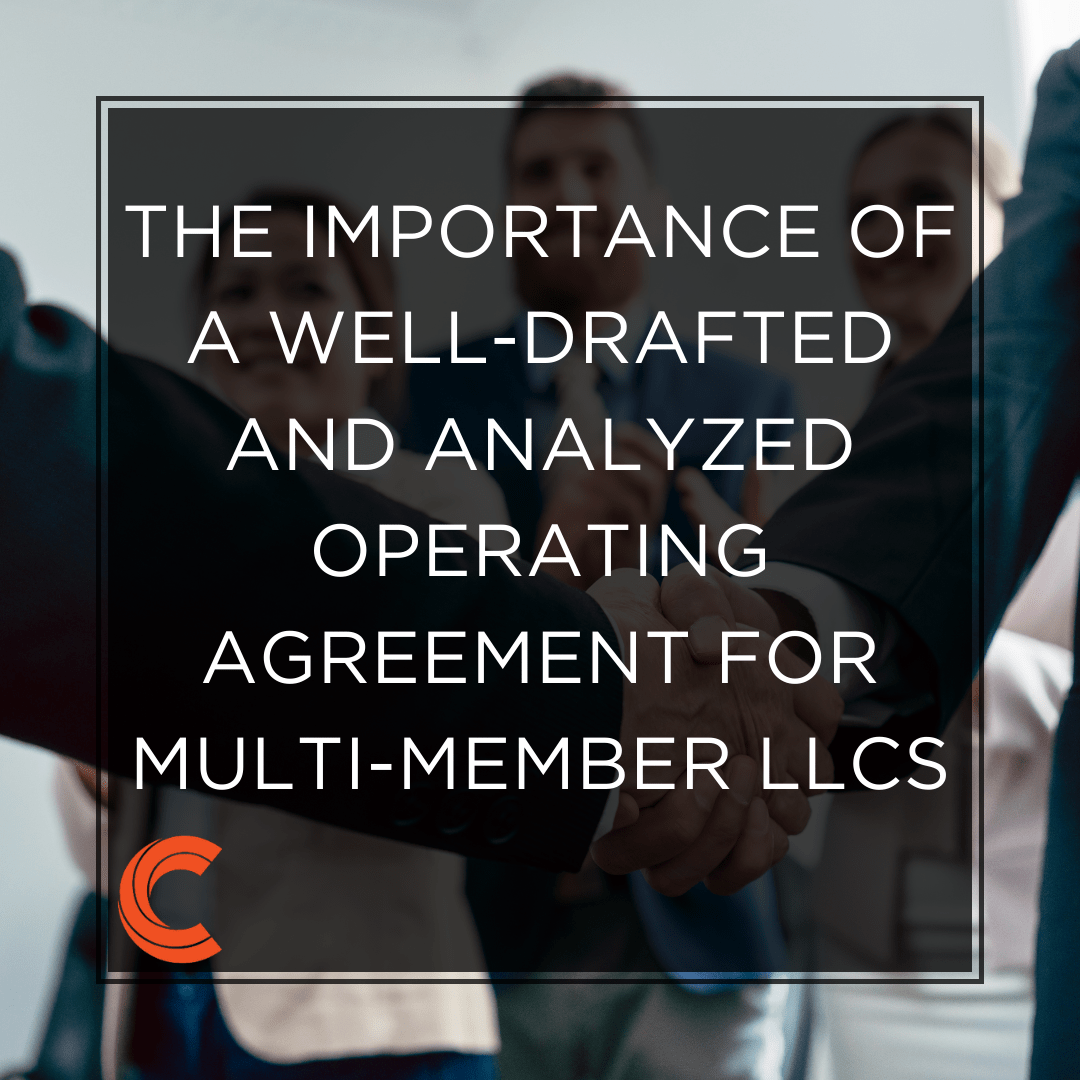Introduction
Forming a multi-member LLC is an exciting venture, but ensuring its long-term success requires more than just an idea and investment. One of the most critical components of setting up a multi-member LLC is crafting a well-drafted and thoroughly analyzed operating agreement. This document can make or break your business, providing a clear roadmap for operations and safeguarding against future disputes. So, let’s dive deep into why this piece of paper holds such paramount importance.
What is an Operating Agreement?
Definition and Purpose
An operating agreement is a document that outlines the governing rules, regulations, and provisions for operations, management, and financial arrangements within the LLC. It serves as a legal contract between the members, delineating roles, rights, and responsibilities.
Legal Requirements and Flexibility
While not every state mandates an operating agreement, having one in place is a smart move. It offers flexibility, allowing members to tailor the rules to fit their specific business needs rather than defaulting to the state’s generic statute.
Key Components of a Multi-Member LLC Operating Agreement
Member Roles and Responsibilities
Clearly defined roles prevent chaos. The agreement should specify each member’s duties, authority, and what’s expected from them. It’s like assigning chores among roommates — everyone knows their job, so nothing falls through the cracks.
Profit Sharing and Distributions
How will profits and losses be divided? This section should lay out the method and frequency of distributions. It removes ambiguity and ensures everyone is on the same page when it comes to their share of the pie.
Decision-Making Processes
Decisions, especially significant ones, need a structured approach. Whether it’s majority vote or unanimous consent, outlining the decision-making process can avoid stalemates and ensure smooth governance.
Dispute Resolution Procedures
Conflicts are inevitable. Having a clear mechanism for resolving disputes can save time, money, and relationships. From mediation to arbitration, spell out the process to handle disagreements effectively.
Buyout and Transfer Provisions
Life happens, and members may need to leave or transfer their interests. Detailing buyout and transfer procedures protects the LLC from disruptions and ensures continuity.
Dissolution Procedures
Even the best plans can change. If the LLC needs to dissolve, having a laid-out procedure ensures an orderly wind-up, minimizing potential conflicts and financial fallout.
Benefits of a Comprehensive Operating Agreement
Avoiding Conflicts and Disputes
A robust operating agreement is your business’s peacekeeper. By clearly stating expectations and procedures, it mitigates misunderstandings and conflicts among members.
Legal Protection and Limited Liability
The agreement reinforces the LLC’s limited liability status. It underscores that the business is a separate entity, protecting personal assets from business liabilities.
Clarifying Business Operations
From everyday tasks to significant business decisions, a comprehensive operating agreement clarifies how things should be done. It’s the rulebook that prevents chaos and mismanagement.
Common Pitfalls to Avoid in Drafting Operating Agreements
Overlooking State-Specific Laws
Each state has unique requirements and default rules for LLCs. Ignoring these can render parts of your agreement unenforceable or create unintended legal issues.
Ambiguities and Vagueness
Vague terms can lead to differing interpretations and disputes. Be precise and clear in language to avoid these pitfalls and ensure mutual understanding.
Failure to Update Agreements
Businesses evolve. Failing to update the operating agreement as the LLC grows or changes can lead to outdated provisions that no longer align with the current business model.
Case Studies: Lessons Learned from Real-World Examples
Successful Operating Agreements
Consider a tech startup where roles and profit-sharing were clearly defined in the operating agreement. This clarity helped them secure a round of venture funding and smoothly navigate growth stages.
Costly Mistakes
Contrast this with a family-owned LLC that neglected to update their agreement after a significant member left. The resulting confusion and legal disputes cost them time, money, and strained family relations.
The Role of Professional Legal Consultation
Expertise and Experience
Working with a legal professional brings expertise and experience to the table. They can anticipate potential issues and craft an agreement that’s both comprehensive and compliant.
Tailored Solutions
Every LLC is unique. A lawyer can tailor the operating agreement to meet specific needs, ensuring it addresses the particular dynamics and goals of the business.
Conclusion
A well-drafted and analyzed operating agreement is indispensable for multi-member LLCs. It’s not just a legal formality but a vital tool that lays the foundation for smooth operations, conflict avoidance, and legal protection. Investing time and resources into creating a robust agreement can save your business from future headaches and foster a collaborative and clear working environment.
FAQs
- Why is an operating agreement crucial for multi-member LLCs?An operating agreement is crucial because it outlines the rules, responsibilities, and processes governing the LLC, ensuring clarity and preventing disputes among members.
- Can a multi-member LLC operate without an agreement?While it’s possible, it’s not advisable. Without an agreement, the LLC default rules apply, which may not suit your business needs and could lead to conflicts.
- What happens if we don’t update our operating agreement?Failing to update the agreement can lead to outdated provisions that no longer match the business’s current state, potentially causing mismanagement and legal issues.
- How can a lawyer help with drafting an operating agreement?A lawyer brings expertise, ensuring the agreement is comprehensive, compliant with state laws, and tailored to your LLC’s specific requirements.
- What should be included in the dispute resolution section of an operating agreement?This section should detail the steps for resolving conflicts, such as mediation or arbitration, to handle disputes efficiently and amicably.




